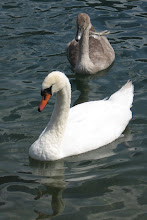Jesus Himself did not write any books. Virtually everything we know about his life and his teaching is what is written in the four gospels. The gospel writers were selective in what they wrote (John 20:30,31); they say nothing about Jesus’ physical appearance, for example, because for them it was unimportant what he looked like. They did record what was significant: the miracles that pointed to who he was (John calls them ‘signs’), and the teaching that showed them (and us) how to live. And they all devote a great deal of space (about one quarter each of Matthew and Luke, one third of Mark’s gospel, and almost half of John) to the last week of Jesus’ life – his death and resurrection being the most important thing of all.
Matthew, Mark and Luke have a great deal in common, and are sometimes known as the Synoptic gospels. John is very different in style and content. Apart from the Resurrection, only one miracle is recorded in all four: the feeding of the five thousand.
To begin with, information about the words and deeds of Jesus was spread around by those who had known Him personally. It was only when those who had witnessed his ministry began to grow old and die that it became necessary to write down their testimony.
So, who wrote the gospels?
Matthew and John were members of the original band of apostles, and had witnessed these events at first hand.
Mark was closely associated with both Paul and Peter (he is mentioned several times elsewhere in the NT – Acts 12:12; Acts 13:5; Acts 15:37,38; II Timothy 4:11), and his gospel is thought to be based on the testimony of the apostle Peter.
Luke is the odd one out! He was a Gentile (the only Gentile writer in the NT) and a friend and travelling companion of Paul. We know from Acts (Acts 21-26) that Luke spent about two years in Palestine while Paul was imprisoned there, and he would have had plenty of opportunity to collect eyewitness reports and other information about Jesus’ life.
Acts is ‘Part 2’ of Luke’s Gospel, giving some of the history of the early church. Many of the events in it were witnessed by Luke himself; you know this when the account starts to refer to ‘we’ and ‘us’.
Subscribe to:
Post Comments (Atom)

No comments:
Post a Comment